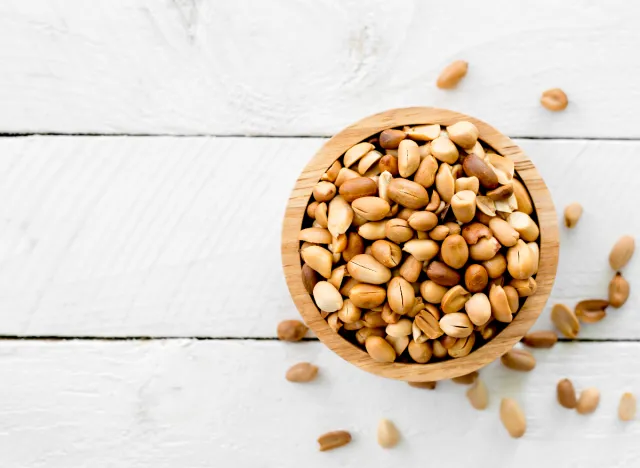Follow These Healthy Habits To Live to 100 and Beyond, Science Says

There’s a cool club in town—do you want to score a membership? In order to earn the longevity status of a centenarian, you have to reach 100 years of age. According to the World Economic Forum, as of 2021, there were more than 500,000 people from all over the world 100 years of age or even older. It’s a pretty exclusive status, and we are here to share some healthy habits to live to 100 and beyond.
The World Economic Forum reveals that there are approximately 97,000 centenarians living in the United States alone, with the country housing the greatest amount of centenarians on the planet. Japan is home to the 2nd largest number of 100-year-old individuals, with 79,000 centenarians (0.06% of their population). The “oldest living human,” Kane Tanaka, lived to 119 years of age and resided in Japan. After Tanaka’s passing in April 2022, 118-year-old Lucile Randon—also known as Sister André, a nun from France—took on the title of the world’s oldest person, which has been confirmed by the Guinness World Records.
The United Nations predicts the total number of 100-year-old individuals in the world will increase to 573,000 this year. The average life expectancy in many countries has risen. Some of the other countries with high numbers of centenarians include Hong Kong, Uruguay, and Puerto Rico.
Without further ado, if you want to achieve centenarian status, let’s get into the healthy habits to live to 100. Keep reading to learn more.
Draw inspiration from the world’s oldest person, Sister André, who loves wine and chocolate.

The key to living a long life is to live a healthy one. After all, what good is longevity if you can’t enjoy it? Of course, diet and exercise are huge when it comes to maintaining a fit, healthy lifestyle. But that’s only part of it. Take some inspiration from Sister André. She savors a glass of red wine each day, which David Tavella, the activity leader at the nursing home where Sister André resides, reveals is “perhaps her longevity secret” (via Well+Good). Another one of Sister André’s favorite treats? Chocolate!
Related: The Lifestyle Habits That Slow Down Aging, From a 100-Year-old Neurologist
Living in a very walkable area with a good mix of ages could help you live to 100.

A study performed at Washington State University’s Elson S. Floyd College of Medicine and published in the International Journal of Environmental Research and Public Health reveals that individuals who reside in very walkable areas with a good mix of ages may have a higher chance of reaching 100. Rajan Bhardwaj, the author of the study and a WSU medical student, explains, “Our study adds to the growing body of evidence that social and environmental factors contribute significantly to longevity.”
Staying positive is key.

UnitedHealthCare interviewed 100 centenarians with a variety of questions about their health and general lifestyle habits. The centenarians surveyed said that remaining positive is a crucial part of living a long existence. The results indicate that keeping a positive attitude is one of the healthy habits to live to 100 and beyond.
Related: Doctors Weigh In on the Exercise Habits That Slow Aging
Snacking on nuts—specifically, peanuts—is linked to a lower risk of mortality.

Nuts are healthy to eat—most specifically, peanuts! According to a study by Vanderbilt University, nuts are linked to a lower risk of death (via Men’s Journal). An older study performed by Harvard observed 119,000 medical professionals for a period of 30 years. The individuals who consumed about a handful of nuts on the daily were found to have a 29% less likeliness of developing heart disease and a 20% lower risk of dying.
Performing leisurely fitness can help you live longer.

New research performed by the National Cancer Institute and published in the journal JAMA Network Open indicates you can live longer if you add leisure activities to your routine (via CNN). By choosing something you love doing, whether that may be tennis, pickleball, swimming, or running, leisurely fitness seems to lower the chance of early mortality, in addition to death from cancer and cardiovascular disease.
Scientists reviewed responses from more than 272,000 individuals ranging in age from 59 to 82, who were observed for 12 years or more as part of a health and diet study. The research indicates that a combination of aerobic activities performed for the recommended time each week (2.5 to 5 hours of moderately intense exercise or 1.25 to 2.5 hours of vigorous aerobic exercise per week), results in a 13% decreased risk of mortality.








